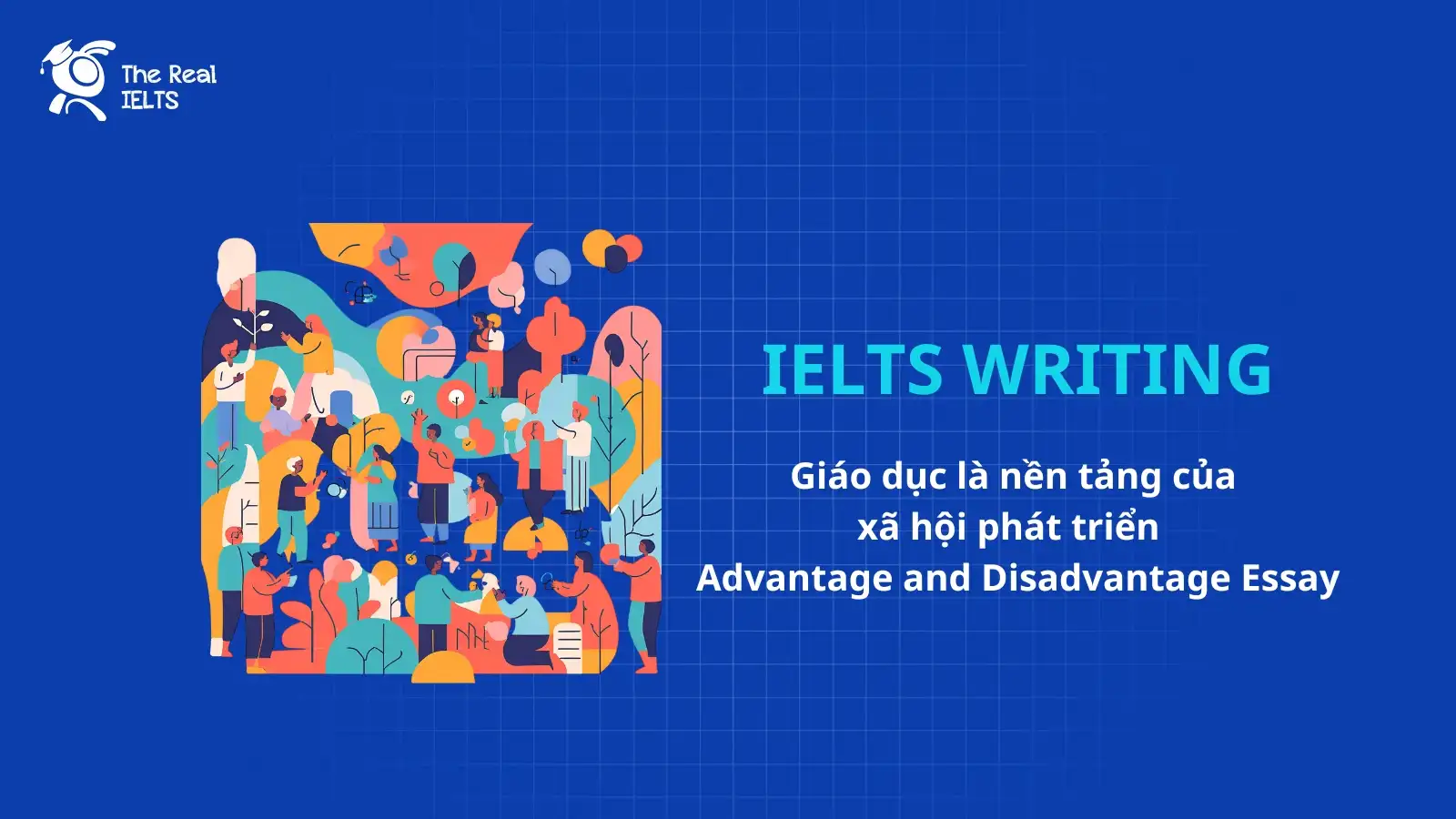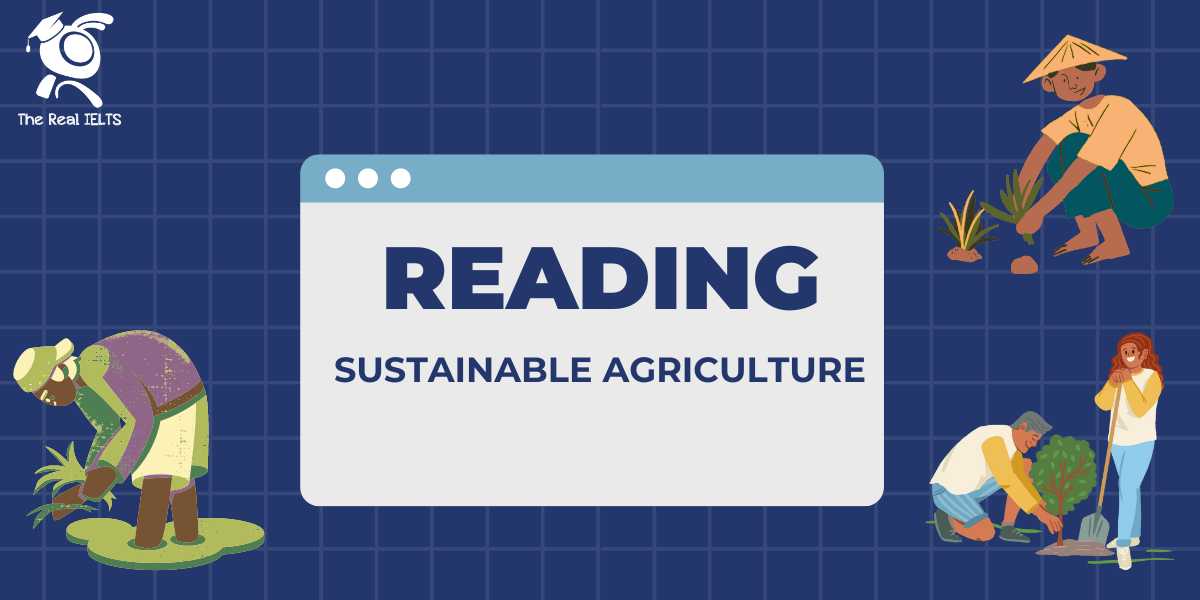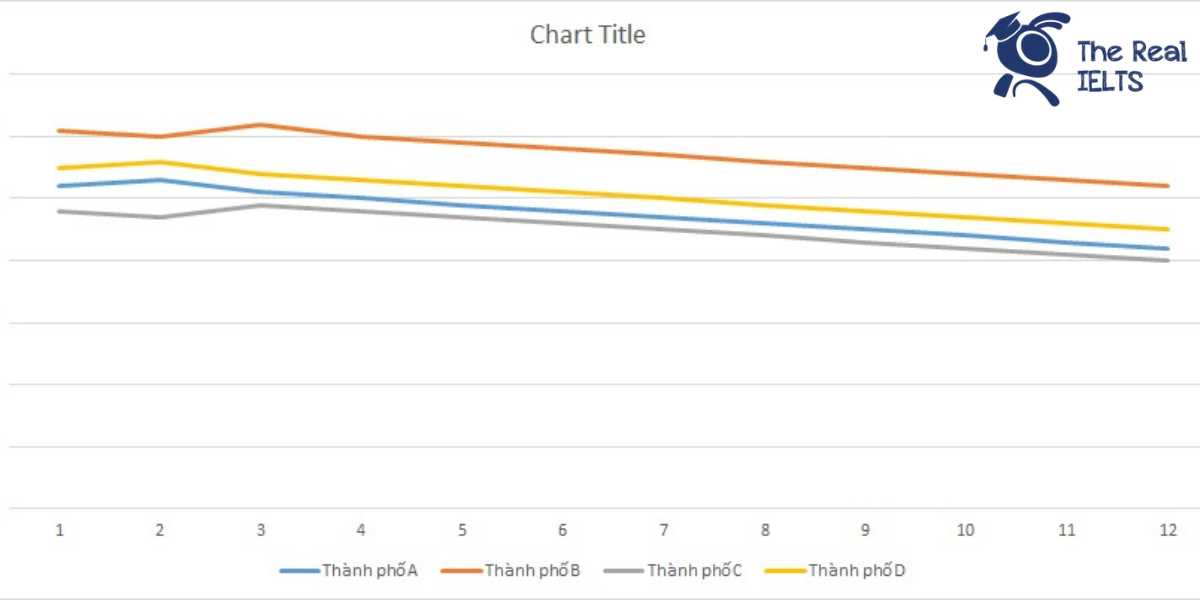Đề bài IELTS Writing Task 2 dạng Positive or Negative meat substitutes
You should spend about 40 minutes on this task
The trend of plant-based diets and meat substitutes. Do you think this is a positive or negative development?
Write at least 250 words.
Giải mẫu đề luyện thi IELTS Writing
In recent years, there has been a significant shift towards plant-based diets and the consumption of meat substitutes. This trend, driven by health, environmental, and ethical concerns, has sparked debate over whether it is a positive or negative development. While I acknowledge the benefits of plant-based diets, I believe that this trend also has certain drawbacks that should not be overlooked.
On the one hand, the rise of plant-based diets offers numerous advantages. Firstly, adopting a plant-based diet is often associated with better health outcomes. Research has shown that such diets can reduce the risk of chronic diseases like heart disease, diabetes, and certain types of cancer. These health benefits are largely due to the high intake of fruits, vegetables, and whole grains, which are rich in essential nutrients and antioxidants.
Secondly, the environmental impact of plant-based diets is considerably lower than that of meat-based diets. Livestock farming is a major contributor to greenhouse gas emissions, deforestation, and water consumption. By reducing meat consumption and increasing the intake of plant-based foods, individuals can significantly lower their carbon footprint and help combat climate change.
However, despite these advantages, the trend towards plant-based diets and meat substitutes also presents certain challenges. One concern is the nutritional adequacy of such diets. While plant-based diets can be healthy, they may lack certain nutrients that are more readily available in animal products, such as vitamin B12, iron, and omega-3 fatty acids. Without careful planning and supplementation, individuals may face deficiencies that could adversely affect their health.
Moreover, the production of meat substitutes, particularly highly processed ones, raises questions about their overall health benefits. Many meat substitutes contain additives, preservatives, and high levels of sodium to mimic the taste and texture of meat. These ingredients can negate some of the health benefits of a plant-based diet and may even contribute to health issues if consumed in excess.
In conclusion, while the trend towards plant-based diets and meat substitutes is largely a positive development due to its health and environmental benefits, it is not without its drawbacks. The potential for nutritional deficiencies and the risks associated with highly processed meat substitutes should be carefully considered. Therefore, I believe that this trend is a positive development overall, but it requires mindful implementation to ensure that individuals can enjoy the full benefits without compromising their health.
Thống kê cấu trúc câu và cấu trúc ngữ pháp
1. Cấu trúc câu và cấu trúc ngữ pháp:
- Câu phức (Complex Sentences):
- “In recent years, there has been a significant shift towards plant-based diets and the consumption of meat substitutes.”
- (Mệnh đề phụ trạng ngữ thời gian “In recent years”)
- “This trend, driven by health, environmental, and ethical concerns, has sparked debate over whether it is a positive or negative development.”
- (Mệnh đề quan hệ rút gọn “driven by health, environmental, and ethical concerns”)
- “While I acknowledge the benefits of plant-based diets, I believe that this trend also has certain drawbacks that should not be overlooked.”
- (Mệnh đề trạng ngữ chỉ sự tương phản “While I acknowledge the benefits of plant-based diets”)
- “These health benefits are largely due to the high intake of fruits, vegetables, and whole grains, which are rich in essential nutrients and antioxidants.”
- (Mệnh đề quan hệ “which are rich in essential nutrients and antioxidants”)
- “By reducing meat consumption and increasing the intake of plant-based foods, individuals can significantly lower their carbon footprint and help combat climate change.”
- (Mệnh đề phụ chỉ cách thức “By reducing meat consumption and increasing the intake of plant-based foods”)
- “Without careful planning and supplementation, individuals may face deficiencies that could adversely affect their health.”
- (Mệnh đề phụ chỉ điều kiện “Without careful planning and supplementation”)
- “Moreover, the production of meat substitutes, particularly highly processed ones, raises questions about their overall health benefits.”
- (Mệnh đề phụ “particularly highly processed ones”)
- “In recent years, there has been a significant shift towards plant-based diets and the consumption of meat substitutes.”
- Câu ghép (Compound Sentences):
- “Firstly, adopting a plant-based diet is often associated with better health outcomes, and research has shown that such diets can reduce the risk of chronic diseases like heart disease, diabetes, and certain types of cancer.”
- (Liên kết hai ý bằng “and”)
- “Many meat substitutes contain additives, preservatives, and high levels of sodium to mimic the taste and texture of meat, and these ingredients can negate some of the health benefits of a plant-based diet and may even contribute to health issues if consumed in excess.”
- (Liên kết các ý bằng “and”)
- “Firstly, adopting a plant-based diet is often associated with better health outcomes, and research has shown that such diets can reduce the risk of chronic diseases like heart disease, diabetes, and certain types of cancer.”
- Câu đơn (Simple Sentences):
- “Secondly, the environmental impact of plant-based diets is considerably lower than that of meat-based diets.”
- “Livestock farming is a major contributor to greenhouse gas emissions, deforestation, and water consumption.”
2. Từ kết nối (Linking words/phrases) giữa các câu và các đoạn:
- Dẫn nhập và chuyển ý:
- “In recent years” – Dẫn nhập vào chủ đề thảo luận.
- “On the one hand” – Dùng để giới thiệu một mặt của vấn đề.
- “Secondly” – Dùng để nối ý thứ hai trong một chuỗi lập luận.
- “However” – Dùng để trình bày quan điểm trái ngược.
- “Moreover” – Thêm thông tin bổ sung.
- Từ kết nối câu:
- “Firstly” – Dùng để giới thiệu ý đầu tiên trong một lập luận.
- “While” – Dùng để nối hai mệnh đề tương phản trong cùng một câu.
- “By” – Dùng để diễn tả cách thức hành động xảy ra.
- “Without” – Dùng để nêu điều kiện tiêu cực.
- “Therefore” – Dùng để chỉ kết quả hoặc kết luận dựa trên các lập luận trước.
3. Một số cấu trúc ngữ pháp đáng chú ý:
- Mệnh đề trạng ngữ (Adverbial Clauses):
- “While I acknowledge the benefits of plant-based diets…”
- “By reducing meat consumption and increasing the intake of plant-based foods…”
- “Without careful planning and supplementation…”
- Mệnh đề quan hệ (Relative Clauses):
- “…which are rich in essential nutrients and antioxidants.”
- “…that could adversely affect their health.”
- Mệnh đề bị động (Passive Voice):
- “The trend… has sparked debate…”
- “The production of meat substitutes… raises questions…”
- Cụm danh từ phức tạp (Complex Noun Phrases):
- “a significant shift towards plant-based diets”
- “the environmental impact of plant-based diets”
- “the production of meat substitutes, particularly highly processed ones”
Các từ vựng tiếng Anh cần lưu ý trong bài viết
- Plant-based diets – Chế độ ăn dựa trên thực vật
- Meat substitutes – Thực phẩm thay thế thịt
- Positive development – Sự phát triển tích cực
- Negative development – Sự phát triển tiêu cực
- Health outcomes – Kết quả về sức khỏe
- Chronic diseases – Bệnh mãn tính
- Nutrients – Chất dinh dưỡng
- Antioxidants – Chất chống oxy hóa
- Environmental impact – Tác động đến môi trường
- Livestock farming – Chăn nuôi gia súc
- Greenhouse gas emissions – Phát thải khí nhà kính
- Deforestation – Sự phá rừng
- Carbon footprint – Dấu chân carbon (lượng khí thải carbon)
- Nutritional adequacy – Độ đầy đủ dinh dưỡng
- Animal products – Sản phẩm từ động vật
- Vitamin B12 – Vitamin B12
- Iron – Chất sắt
- Omega-3 fatty acids – Axit béo omega-3
- Supplementation – Sự bổ sung (dinh dưỡng)
- Deficiencies – Sự thiếu hụt (dinh dưỡng)
- Highly processed – Được chế biến nhiều
- Additives – Chất phụ gia
- Preservatives – Chất bảo quản
- Sodium – Natri
- Mimic – Bắt chước, mô phỏng
- Negate – Phủ nhận, làm mất hiệu lực
- Mindful implementation – Sự thực hiện cẩn trọng
Đọc thêm bài viết: Cách làm bài thi IELTS Writing Task 2.















